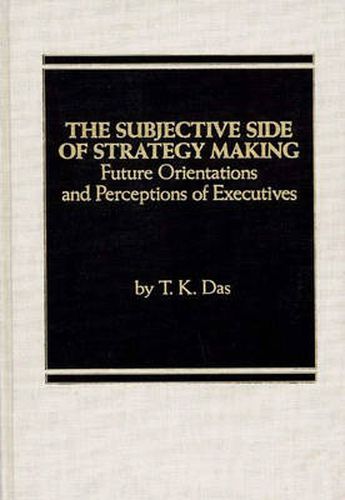Readings Newsletter
Become a Readings Member to make your shopping experience even easier.
Sign in or sign up for free!
You’re not far away from qualifying for FREE standard shipping within Australia
You’ve qualified for FREE standard shipping within Australia
The cart is loading…






This book proposes a conception of the corporate strategy making process that recognizes the individual strategy maker as a center-stage corporate actor. This individual-centered view of the stategy making process is needed in order to better understand the interplay between objective factors and the subjective perceptions and values of strategy makers. Using a large sample of executives working in two of the ten largest U.S. commercial banks, Das examines empirically the dynamics of two critical aspects of the role of individual strategy makers: future orientation and perceptions of the strategic planning milieu. He discusses the various implications of his findings for further research into the strategy making process. The author demonstrates the utility of individual future orientation in understanding how strategy makers influence the character of the eventual corporate strategy. The results of Das’ study help to explain why long-range planning is really more short-range than anyone cares to admit.
$9.00 standard shipping within Australia
FREE standard shipping within Australia for orders over $100.00
Express & International shipping calculated at checkout
This book proposes a conception of the corporate strategy making process that recognizes the individual strategy maker as a center-stage corporate actor. This individual-centered view of the stategy making process is needed in order to better understand the interplay between objective factors and the subjective perceptions and values of strategy makers. Using a large sample of executives working in two of the ten largest U.S. commercial banks, Das examines empirically the dynamics of two critical aspects of the role of individual strategy makers: future orientation and perceptions of the strategic planning milieu. He discusses the various implications of his findings for further research into the strategy making process. The author demonstrates the utility of individual future orientation in understanding how strategy makers influence the character of the eventual corporate strategy. The results of Das’ study help to explain why long-range planning is really more short-range than anyone cares to admit.